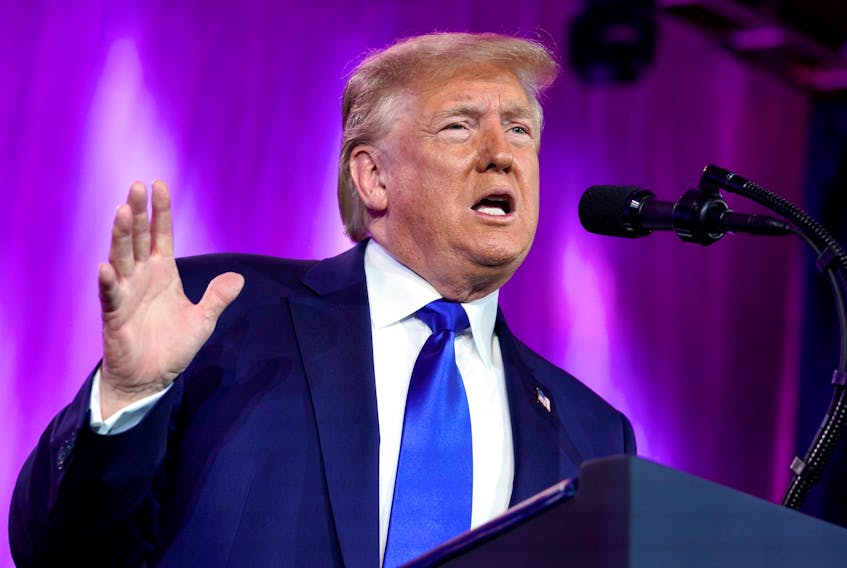Not surprisingly, the Trump Administration has replicated many of America’s worst policy instincts when it comes to dealing with its neighbours in Latin America and the Caribbean.
Like previous U.S. governments, President Donald Trump has sought to throw his weight around indiscriminately in its so-called “backyard,” has not listened carefully to governments in the region and has needlessly lost the respect and trust of the people of the Americas. True to form, his White House has been overly preoccupied with Cuba and, secondarily, the Nicolás Maduro government in Venezuela.
This clearly ill-conceived Latin American policy was recently on display in Trump’s unseemly pressure campaign to snare the leadership role of the Washington-based Inter-American Development Bank (IDB) — one of the region’s critical development lenders. In fact, the IDB lends around US$13 billion annually for various health, infrastructure and education projects throughout the region, focuses on poverty-reduction and inequality and is an important vehicle for conversations between the north and south blocs of the Americas.
The central problem with Trump’s heavy-handed campaign was that it flew in the face of a 60-year tradition of choosing a Latin American as president (and a U.S. citizen as vice-president) of the IDB. And this was always understood as an unwritten rule to placate the Latin American — especially since the U.S. has a 30 per cent voting share (and thus a virtual veto power) within the body.
Of course, Trump’s pick, Cuban-American Mauricio Clavor-Carone, said all the right things after garnering the majority of votes from the 48 board of governors. As he said in a perfunctory fashion: “My commitment remains the same: to work with the IDB member countries to outline a strategy to strengthen the bank, respond to the needs of the region, and to create opportunities for shared prosperity and economic growth.”
Key countries in the region, however, have reacted with horror at the prospect of a U.S. leader of the IDB. They are particularly unnerved by the bullying and disrespectful way in which the Trump White House went about securing the victory of Clavor-Carone (including a threat to withhold post-pandemic relief). Leaders were also rubbed the wrong way by Clavor-Carone’s abrasive personality, his blatant arrogance and the likely ideological divisiveness that he will bring to the multilateral lending agency.
It is worth noting here that Clavor-Carone was one of Trump’s principal advisers on the National Security Council responsible for Latin America. Translation: he was a chief architect of Trump’s hardline and decidedly counterproductive policy toward both Cuba and Venezuela. This, of course, did not endear him to several countries within the wider region.
Some key players like Argentina, Chile, Peru and Mexico wanted to postpone the whole IDB voting exercise until after the Nov. 3 U.S. presidential election. In the end, they were unable to suspend or even boycott the vote after the Trump team turned to its friends in Brazil, Colombia and Ecuador to seal the deal for Clavor-Carone.
Curiously, it’s not entirely clear where Canada, a member of the IDB since 1972, figured into all of this diplomatic manoeuvring. There is some speculation that the Trudeau government was opposed to the Clavor-Carone candidacy — though it did not want to upset the Trump White House by expressing its reservations publicly. But it’s uncertain at this point whether Canada ultimately abstained from voting altogether.
It has been reported that Trump wanted his man in the IDB seat so as to counteract Chinese incursions into the Americas — and particularly places like Cuba, Nicaragua and Venezuela. The reality is that a host of countries in the region benefit from the fact that China is their best customer and they also rely heavily upon Chinese loans and financial aid.
It is also true that the Trump Administration, through its many deeds and harsh rhetoric, has significantly diminished the U.S. presence in the hemisphere and effectively opened the door to China. Indeed, the ham-fisted manner in which the Trump White House and Clavor-Carone have handled this whole IDB episode has only highlighted why the welcoming mat in the region is being extended so aggressively to the eager Chinese.
Facing a deadly pandemic and anaemic economic activity, the last thing that the IDB needed was a battle royal over its top leadership. And it all could have been easily avoided if Trump had just respected regional voices.
Lastly, all of this controversy swirling around the IDB, at least until the U.S. elections are sorted out in November, could potentially complicate Ottawa’s relationship with both the United States and other countries in Latin America. Once again, Canada finds itself in the awkward position it has feared the most since joining the hemispheric community in the early 1990s — namely, having to choose between its American partners and its Latino friends within a Clavor-Carone-led IDB.
Peter McKenna is professor of political science at the University of Prince Edward Island.









